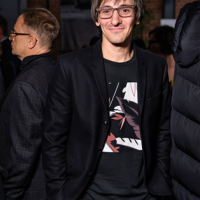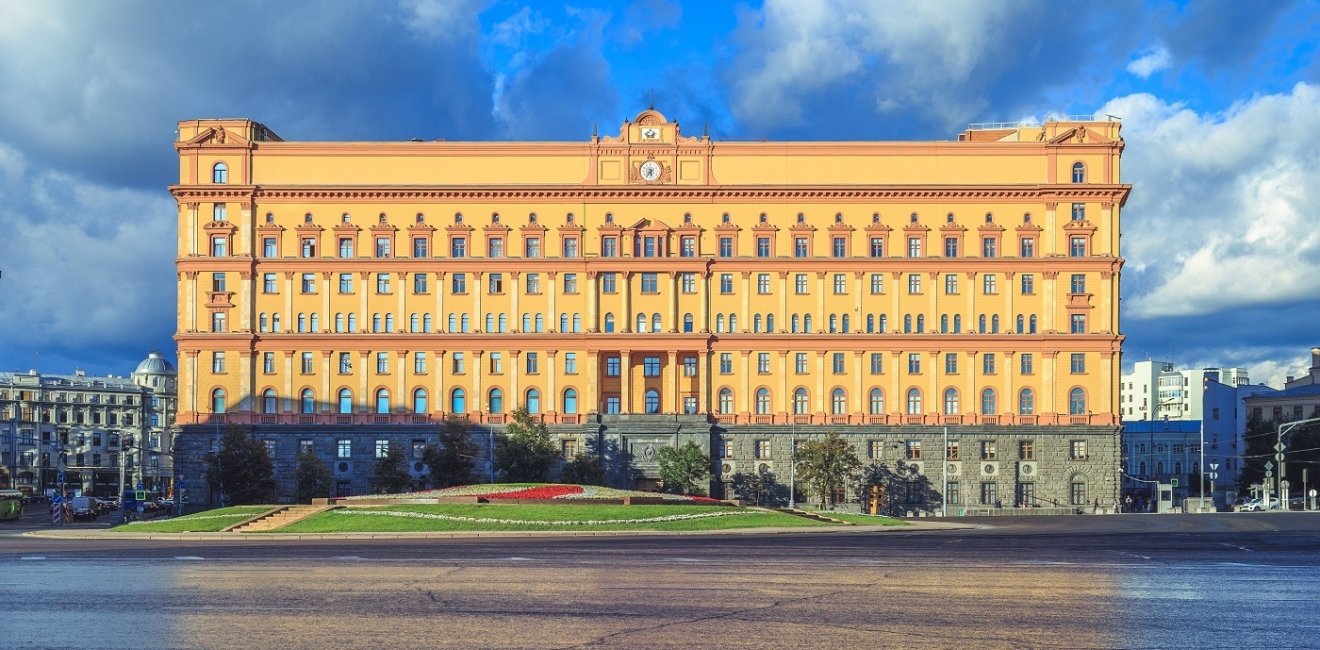
A blog of the Kennan Institute
From a military perspective, Vladimir Putin’s invasion of Ukraine has failed on a large scale. The war he expected to bring to a conclusion within days has turned into a bloodbath with no end in sight. It has taken more Ukrainian and Russian lives than all of Russia’s wars since World War II combined. It has isolated Russia on the global stage to a level not seen even in Soviet times. Never before has Russia’s future been as desperate as now, after twenty-three years of Putin’s rule.
The latest Russian military offensive has failed, the Russian troops suffer defeats on the battlefield, the death toll continues to reach new highs, and Russia has become a pariah state, but Putin betrays no sign of unease. Politically, Putin sees his position as rock-solid. The elites are unable and unwilling to test his rule. And after Russians unexpectedly accepted the mobilization he announced last fall, he knows he can send more men into the trenches. The Russian government has introduced new legislation that will greatly simplify the military draft process. Putin’s plan is to repel the Ukrainian counteroffensive and then to wait the enemy out, whatever the cost.
There Is No State but Putin
Every tyrant feels vulnerable to a military failure and would try to conceal such failure by prolonging the fight. This is why the wars that dictators start are so hard to end. But Vladimir Putin’s confidence goes beyond that pattern. “Whatever the cost” is not just a figure of speech, it is literally the price Putin is ready to pay. As a result of his war with Ukraine, Russia will be ruined as a nation and a state, but he is fine with that. The damage Putin is inflicting on Ukraine, the world—and Russia—reflects his worldview and represents his understanding of statehood.
It is the path of tyranny that has turned Vladimir Putin into a nationalist, fascist type of leader. He has never been moved by big ideas. His political platform has never had a destination point, a goal to achieve. From his first day as Russia’s president, Putin has had no notion of what kind of future for Russia he might aspire to. And he still does not. As the Russian opinion writer Sergey Shelin put it, Putin is not a statesman because for him, there is no state: “Putin’s regime does not care about the state: the leader is everything, the rest is nothing.”
Putin does not have a vision of nation-building. Instead, his actions are defined by his personal grievances and impulses. In general, his rule is determined by a single motivation—to suppress and destroy every institution that would obstruct him on his way to achieving absolute and endless power.
Twenty-three years ago Putin entered Russia’s political scene, which at the time was not a developed democracy but nonetheless a thriving, competitive regime, inhabited by various vivid political actors and functioning institutions. In May 2000, the day after he came to power, Putin started an assault on the media by jailing Vladimir Gusinsky, owner of the NTV television channel; in September 2004, as the final flourish of this attack, he switched from election of the heads of the Russian regions to appointing them himself. That was it. In the course of four years, Putin took under his personal control every part of the Russian state.
In gaining ground, Putin relied on the nation’s growing frustration and nostalgia: the image of Russia’s past greatness and power looked increasingly appealing from the vantage point of the tumultuous 1990s. And Putin’s rule has largely been seen through this lens as an attempt to restore the Soviet system and the Soviet empire. From this perspective, Putin, with his KGB background, is regarded as the ambassador of the almighty Soviet security apparatus, which was not destroyed after the Communist regime collapsed in 1991 and later reclaimed its power in the form of the FSB, the KGB’s successor, with Putin’s help.
Entrenching Tyranny through the Security Apparatus
Under Putin, the FSB has indeed assumed great authority—in fact, much greater authority than the KGB had after Stalin’s death. But it was not the KGB that brought Putin to the height of power. It was Putin who made his way to the top and then transformed the FSB into his personal repressive watchdog. Russia’s security machine as we know it is more a Putin creation than a successor to a Soviet agency. As the Russian journalists Andrey Soldatov and Irina Borogan put it in their book The New Nobility: The Restoration of Russia's Security State and the Enduring Legacy of the KGB, “The FSB is not the reincarnation of the KGB; it has morphed into a totally new entity, more influential than its Soviet predecessor.”
In Soviet times, the KGB was subject to political control. At every level, it had an assigned Communist Party member who would monitor its activity. After the era of Stalin’s Terror, this was how the Soviet bureaucracy secured itself against the unchecked power of the security apparatus. Today the FSB has unlimited power. Rather than a Soviet-style security service, however, it is a reincarnation of Ivan the Terrible’s oprichnina, the Russian monarch’s personal oppressive force, beyond the reach of any established law and order agencies. (And now, as Russian political analyst Nikolay Petrov points out, as Putin’s regime turns into blatant tyranny, the levers of power are shifting further from the FSB and toward the apparatus of Putin’s personal guards.)
In a bird’s-eye view, Putin’s FSB resembles the KGB. In fact, it is as analogous to the KGB as United Russia, the Kremlin’s party, is to the Soviet Communist Party. In the Soviet system, the party and its supreme body, the Politburo, were the sources of authority. United Russia is faceless and stripped of agency. Its only purpose is to guarantee Putin's personal control over the political system and convert his emotions into legislation. The same is true of the FSB: it is a coercive mechanism whose only mission is to enforce Putin’s absolute power.
The War Is Not Intended to Achieve Peace
From the start of the war, Putin has offered various excuses for his invasion of Ukraine. His war narrative includes stopping “the genocide of the people of Donbas” (which never happened) and exploiting grievances over NATO expansion (which was not a problem for Putin in the early 2000s and appears to be only a trifling problem now, if one takes into account Russia’s overall indifference to Finland joining NATO). Putin claims that Ukraine has no right to exist because it is historically part of Russia, and presents his war as a last-resort measure to preserve “Russian civilization.”
Yet initially, this imperialist fervor is not part of Putin’s platform. It derives from the same obsession with his authority. Having broken every institution at home and having pushed his power to the limit, he has started looking outward. Combined with a growing desire for revenge—since the early 2000s, Ukraine has been the only field in which he keeps losing—Putin’s spiraling egotism has found a perfect target.
Even if Vladimir Putin’s conquest of Ukraine fails, there has not been a single moment in which he was ready to sit down at the negotiating table. Russia is ready to negotiate if the negotiations are based on “a new world order,” says Russian foreign minister Sergey Lavrov, but that is unachievable. Russia seeks to destroy the current order, not build a new one. Over the course of this war, Moscow has conveyed a single message: there are no norms or laws that Russia would be eager to comply with. Every pillar of the international security architecture Putin would dismiss as nonsense, of no more consequence than his latest hockey game. And this is all the more true because the West labels him a pariah and war criminal now, so why bother playing by the rules? Putin’s only current limitation is his feeling of personal safety. Otherwise he probably would already have launched a nuclear strike on Ukraine.
The conflict in Ukraine is approaching a decisive—and possibly very dangerous—moment. Putin counts on a growing fatigue with the war among Ukraine’s allies. If the allies waver, and if Ukraine’s coming counteroffensive is not successful, President Zelensky will be pushed to negotiate a peace settlement on Putin’s terms. But make no mistake: for Putin it would just be a pause in the fighting as he is ultimately not interested in peace and is ready to pay any price in order not to achieve it.
The opinions expressed in this article are those solely of the author and do not reflect the views of the Kennan Institute.
Author

Russian Journalist and Filmmaker

Kennan Institute
After more than 50 years as a vital part of the Wilson Center legacy, the Kennan Institute has become an independent think tank. You can find the current website for the Kennan Institute at kennaninstitute.org. Please look for future announcements about partnership activities between the Wilson Center and the Kennan Institute at Wilson Center Press Room. The Wilson Center is proud of its historic connection to the Kennan Institute and looks forward to supporting its activities as an independent center of knowledge. The Kennan Institute is committed to improving American understanding of Russia, Ukraine, Central Asia, the South Caucasus, and the surrounding region through research and exchange. Read more

Explore More in The Russia File
Browse The Russia File
Chechnya as a Model of Modern Russia

Russia’s Indigenous Communities and the War in Ukraine

Gas and Power in a Changing US–Russia Relationship

